Data Anonymization Strategies: Ensuring Privacy in Custom CRM Solutions
In the digital age, data is a valuable asset for businesses, providing insights that drive strategic decisions and improve customer experiences. However, with the increasing concern over privacy, businesses must ensure that sensitive customer information is protected. Data anonymization is a key strategy employed in custom Customer Relationship Management (CRM) solutions to achieve this balance. It allows businesses to protect privacy while retaining the utility of the data for analysis and insights. In this blog, we will explore various data anonymization strategies used in custom CRM solutions and how they ensure privacy protection.
Data anonymization is the process of modifying data in such a way that it prevents the identification of individuals from that data. This involves transforming personally identifiable information (PII) so that it cannot be linked back to a specific person, thus protecting privacy.
![[object Object]](https://clipl-web1.sgp1.cdn.digitaloceanspaces.com/images/cm0kt0s9z00bf32qgftzv2ikh.png)
Custom CRM solutions handle vast amounts of sensitive customer data, including names, addresses, contact information, and purchase histories. Anonymizing this data is crucial for:
- Compliance with Regulations: Many data protection regulations, such as GDPR and CCPA, require businesses to implement measures that protect personal data, including anonymization.
- Privacy Protection: Anonymization ensures that customer privacy is maintained, even if the data is accessed by unauthorized parties.
- Data Utility: Anonymized data retains its value for analysis and insights, allowing businesses to make informed decisions without compromising privacy.
![[object Object]](https://clipl-web1.sgp1.cdn.digitaloceanspaces.com/images/clu85g32c004p4irz90k4e9u5.png)
- Data Masking: Data masking involves replacing sensitive data with fictitious but realistic data. For example, real names and addresses might be replaced with generated ones that look authentic but are not tied to any real person.
- Pseudonymization: Pseudonymization replaces identifiable information with pseudonyms or codes. Unlike full anonymization, pseudonymized data can be reversed with the right key or process, providing a balance between privacy and utility.
- Aggregation: Data aggregation involves summarizing data to a level where individual details are not exposed. For example, instead of storing each customer's exact age, the data might be grouped into age ranges.
- Data Swapping: This technique involves swapping values between records in a dataset. For example, birthdates between different records might be swapped to ensure the data is not directly attributable to any single individual.
- Generalization: Generalization reduces the precision of the data. For example, instead of storing an exact address, the data might be generalized to only show the city or postal code.
- Noise Addition: Adding random noise to data values can help protect privacy. For instance, small random changes might be added to income values, making it difficult to identify individuals while preserving overall data trends.
![[object Object]](https://clipl-web1.sgp1.cdn.digitaloceanspaces.com/images/clu85gvvd004t4irzgz1cbrbk.png)
Custom CRM solutions can integrate these anonymization strategies to ensure data privacy:
- Built-in Anonymization Tools: Custom CRM systems can include built-in tools for data anonymization, allowing businesses to automatically anonymize data during collection, storage, and analysis.
- Anonymization Policies and Procedures: Establishing clear policies and procedures for data anonymization ensures consistent application across the organization. These policies should define when and how data should be anonymized.
- Regular Audits and Assessments: Conducting regular audits and assessments of anonymization practices helps ensure compliance with regulations and the effectiveness of privacy protection measures.
- User Training and Awareness: Training employees on the importance of data anonymization and how to implement it effectively is crucial. This helps ensure that privacy protection is a shared responsibility across the organization.
Conclusion
Data anonymization is a vital strategy for ensuring privacy in custom CRM solutions. By employing techniques like data masking, pseudonymization, aggregation, and others, businesses can protect sensitive customer information while retaining the utility of the data for analysis and insights. This balance between privacy protection and data utility is crucial for compliance with regulations, building customer trust, and leveraging data to drive business success.
Custom CRM solutions that integrate robust data anonymization strategies provide a powerful tool for businesses, enabling them to manage customer relationships effectively while safeguarding privacy. As data protection regulations continue to evolve, the importance of anonymization in maintaining privacy and compliance will only grow, making it an essential component of modern CRM systems.























